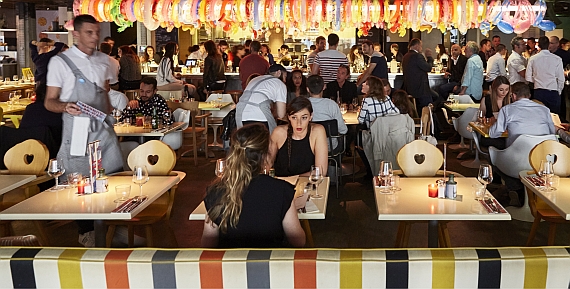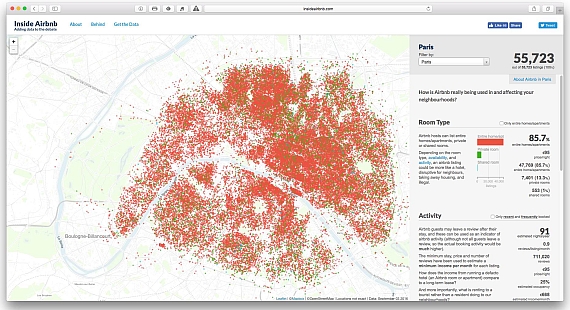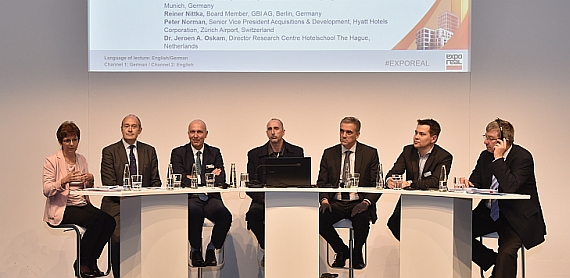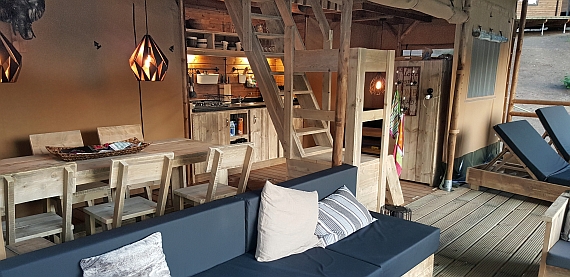
News & Stories
Barcelona. From New York to Barcelona, the noose is tightening around the neck of apartment rental companies. Last week, Barcelona City Council announced it is going to fine Airbnb and its competitor HomeAway 600,000 euros each for listing unlicensed properties.
Amsterdam. Is Airbnb losing its mojo? The home rental platform is currently facing several legal issues in many American cities and it seems that its arguments are not holding in front of judges anymore.
Food for fun
Amsterdam. While people choose to dine out more frequently, most of them avoid hotel restaurants. No access to the street, sterile environment, formal service, over-priced dishes and sometimes a combination of all, prevent hotel restaurants from making extra revenue with locals. A few brands, like for instance, French Mama Shelter, British The Hoxton or American Dream Hotel make their bread and butter with locals. But they remain exceptions in a hospitality world where hoteliers mainly focus on rooms. Yes, margins are higher on the accommodation part, but F&B, when done properly, can certainly bring extra cash as well as a great reputation to the property.
New York. New York passed a bill making it possible to fine illegal renters up to 7,500 dollars. Airbnb failed to stop it and is now suing the city. Ignoring local regulations – is this the end of Airbnb's rapid expansion? Yesterday Airbnb reacted: surprisingly, the platform now allows the registry of hosts.
Munich. As long as cities don't keep a close watch on their housing markets and register changes brought about by online rental platforms such as Airbnb & Co, the P2P providers will have it easy. In Munich, for instance, even medical tourists use platforms such as Airbnb. The cities are also struggling with their own rules. As a result, project developers are already feeling the shadow of Airbnb & Co in planning procedures for hotels and serviced apartments. In the hotel industry, above all the chain hotel sector, the phenomenon shows just how far the industry has moved away from its core – hospitality. Part 2 of our summary on the discussion round at the Expo Real Hotel conference "Hospitality Industry Dialogue" two weeks ago.
Munich. Platforms like Airbnb allow the short-term rental of private accommodation. A review by the mathematician and computer specialist Murray Cox in 50 major cities across the globe shows that it's more than that though. Those impacted by increasing gentrification could soon extend not only to tenants, but also to the hotel industry once the boom is over. No wonder then that the discussion round "Airbnb & Co.: The love of the new P2P platforms to the hospitality and housing market" met with lots of interest at the Expo Real hotel conference last Tuesday. Many representatives of the housing sector, from town and city planning and the hotel industry followed the panel discussion very carefully. Yet the real subjects of the discussion were conspicuous by their absence.
Berlin. This week, the German Hotel and Restaurant Association reacted to accusations of a TV show, which criticised a quarter of 1,000 hotels for advertising with "fake" stars. Now, the controls concerning hotel classifications will be tightened.
New York. Strong leadership pays dividends in the digital economy, where continuous innovation, rapid decision-making, and a global mindset are essential to success. Companies that get digital leadership right perform better in the marketplace.
Berlin. Only in June, in the course of the amendment of the German Telemedia Act did the Federal Government of Germany announce its willingness to suspend the liability as a co-liable party for interference concerning WLAN. But now, everything is different again and the European Court of Justice is also involved in this matter.
Innsbruck. Close to nature - but please, in ever more comfortable accommodation... Demand for safari tents with wooden floors and integrated bathroom and for bamboo houses with jacuzzi are growing. Camping has become glamping - camping with a touch of glamour. Glamping continues its ascent. In the mountains and the coast, in Germany as well as in Croatia and France, hotels are investing in camp sites with additional services. Successful camp site providers are also increasingly taking money in hand to improve sites. Camp sites are becoming holiday complexes.




